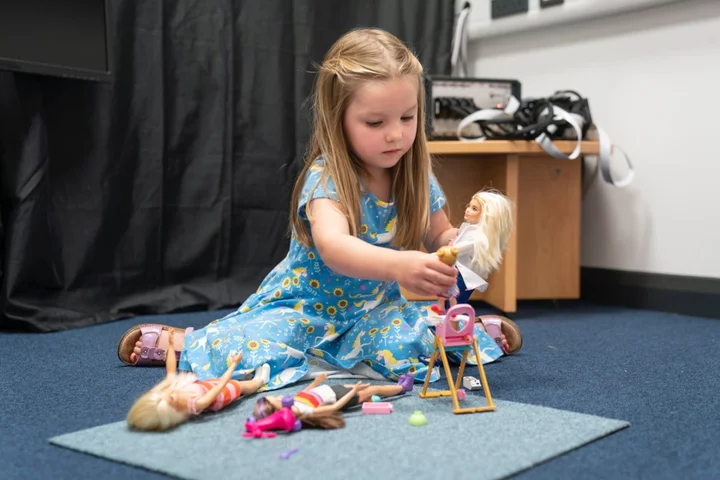
Magpie swooping: How polarising bird terrorises suburban Australia
Each spring, magpies swoop on countless unsuspecting Australians while defending their nests.
2023-09-28 23:53

Swiss glaciers get 10% smaller in two years
The ice fields have lost as much volume in two years as they did in three decades from 1960 to 1990.
2023-09-28 23:48

Iraq wedding fire: What we know about Qaraqosh blaze
About 100 people have been killed by a blaze that swept through a wedding party in Qaraqosh.
2023-09-28 23:27

Wall St opens lower on rate jitters; Powell on deck
Wall Street's main indexes opened lower on Thursday on persistent worries over prolonged restrictive monetary policy, while investors
2023-09-28 21:45

Haiti crisis: Can Kenyan police officers defeat the gangs?
The East African nation has pledged 1,000 officers but many question their suitability.
2023-09-28 21:15

Israel reopens Gaza crossings, lets Palestinians back to work after two weeks
By Nidal al-Mughrabi GAZA (Reuters) -Israel reopened crossing points with Gaza on Thursday, allowing thousands of Palestinian workers to get
2023-09-28 19:45

Evergrande: Why should I care if China property giant collapses?
There are reports the leaders of the heavily indebted Chinese property giant have been detained.
2023-09-28 19:23

Where is China's defense minister? Beijing keeps silent
China has declined to comment on its defense minister's whereabouts as questions swirl over his status a month after he was last seen in public.
2023-09-28 18:25

Playing with dolls could help a child’s social development
Playing with dolls could help the social development of children - including those with neurodiverse conditions such as autism, according to a study. The research, from Cardiff University, found children exhibiting higher levels of autism traits showed increased brain activity in a key region associated with social processing when engaging in conversations with individuals during doll play. The new findings suggested that broader social engagement with others while engaging in doll play was a unique pathway to social development for these children. This was in contrast to what was observed in neurotypical children, who were more likely to discuss the dolls’ thoughts and emotions. However, researchers said that despite this difference, it showed that both groups may be able to benefit from doll play by using it as a tool for practising social scenarios and developing social skills, such as empathy. The findings are the latest release from a multi-year study by the Centre for Human Developmental Science at the university’s School of Psychology. Previous years have focused on neurotypical children and found wide-ranging social and developmental benefits of playing with dolls. Now, in its third year, the research team has replicated those results with a more diverse range of participants, including children aged between four and eight displaying both high and low levels of traits associated with autism. Lead researcher Dr Sarah Gerson said: “Our study shows that doll play can encourage social processing in children, regardless of their neurodevelopmental profile. “The findings show that all children, even those who display neurodivergent traits commonly associated with autism, may use doll play as a tool for practicing social scenarios and developing social skills, such as empathy.” State-of-the-art functional, near-infrared spectroscopy equipment was used to explore brain activation while children played with dolls and on tablets, both by themselves and with another person, replicating conditions from the first year of the study. While observing children, researchers saw increased brain activity in the posterior superior temporal sulcus (pSTS) region - which is heavily involved in social and emotional processing such as empathy - when playing with dolls, for both play with a social partner and during solo doll play, but less so during solo tablet play. The study’s results suggest that doll play could support social processing, regardless of a child’s neurodevelopmental profile, but through different pathways. For children displaying fewer autistic traits in the research, talking about the mental states and emotions of the dolls they were playing with was associated with increased pSTS activity. In contrast, for those displaying more autistic traits, talking with others during doll play, even when playing by themselves, led to more social processing on a neural level. Other research has shown that social processing and empathy skills are important determinants in children’s future emotional, academic, and social success. The study was a collaboration with the Wales Autism Research Centre. ‘Create a more inclusive and supportive environment for their development’ Its director Dr Catherine Jones said: “The study reinforces how it is important that that we acknowledge and value neurodiversity. “This means recognising and valuing the diverse ways in which children’s brains work and approaching social development in a way that is inclusive and accommodating for all children, regardless of their neurodivergence. “By embracing all ways that children choose to play, we can create a more inclusive and supportive environment for their development.” Since the landmark publication of Piaget’s theory of cognitive development, the effects of play have been thought to be positive for kids’ social skills and creativity, but this has never been scientifically evidenced at the brain level. The multi-year long-term study, commissioned by Barbie, is the first time key Piaget theories on play have been scientifically evidenced via brain imaging and the first to use neuroimaging evidence with natural doll play, meaning there was no prescribed storyline to show how the brain is activated during doll play. Michael Swaisland, head EMEA of insight and analytics, Mattel, said: “We are proud to know that when children, regardless of their neurodevelopmental profile, play with Barbie, their playtime may benefit their development. “As Barbie continues to inspire the limitless potential in every child, we are delighted to know, through neuroscience, that playing with dolls may encourage the development of social skills such as empathy in children, including those who display neurodivergent traits commonly associated with autism. “We look forward to uncovering even more benefits of doll play through our long-term partnership with Cardiff University as we look to shine a light on the benefits the play pattern has towards development, that parents might not have been aware of.” Parents and caregivers can visit here to learn more about the research and access resources. Read More Toys children play with can have an effect on their success in adulthood The best exclusive discount codes this payday Many parents of under 5s on less than £50k ‘quit work due to childcare costs’ – survey
2023-09-28 17:51

Some children avoid sleepovers due to fears of wetting the bed
Eight in 10 children who experience bedwetting have never attended a sleepover - because they’re too embarrassed. A survey of 742 adults, with children aged 4-11, found that 69 per cent of kids have turned down an invite to a sleepover party. And nearly as many (67 per cent) of parents have declined an invitation on behalf of their child. To help parents and kids deal with the experience, and help kids make friends and gain independence through sleepovers, Pampers Ninjamas teamed up with Dr Ranj Singh on educational and fun content discussing bedwetting, and how to prepare for nights out of the home. The three-part series provides education about why bladder leaks can happen, as well as practical tips on how to manage them, particularly during sleepover moments. Paediatrician, TV presenter and author Dr Ranj, said: “Sleepovers can play an important role in developing the confidence and independence of children, as well as for their enjoyment. “So I am proud to be helping the 82 per cent of children who are currently missing out, to offer practical advice as to how to better prepare for overnight stays with friends and family.” The research also found more than a quarter (26 per cent) of respondents are not comfortable discussing bedwetting with parents hosting sleepovers. And 35 per cent report an increase in bedwetting before going back to school, suggesting scholastic stress could be a trigger. To combat the situation, 76 per cent have invested in a waterproof mattress, while 68 per cent have purchased nappies for older children. Read More Playing with dolls could help a child’s social development Study finds free childcare reform has ‘little benefit’ to poorer families Most children in kinship care living with at least one grandparent, figures show
2023-09-28 17:50

Congress on track to trigger a shutdown with House and Senate at odds
With only three days to go before government funding expires, Congress is barreling toward a shutdown with the House and Senate at an impasse over a path forward.
2023-09-28 17:27

Travis King arrives back on US soil from N Korea
The US soldier had illegally crossed into North Korea in July and had been held there since.
2023-09-28 17:23
